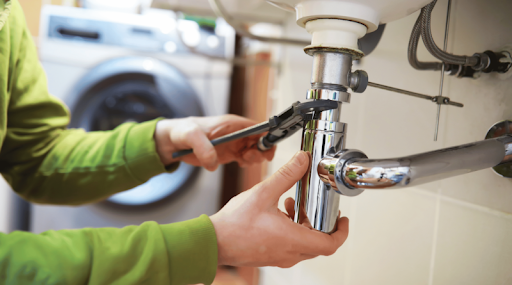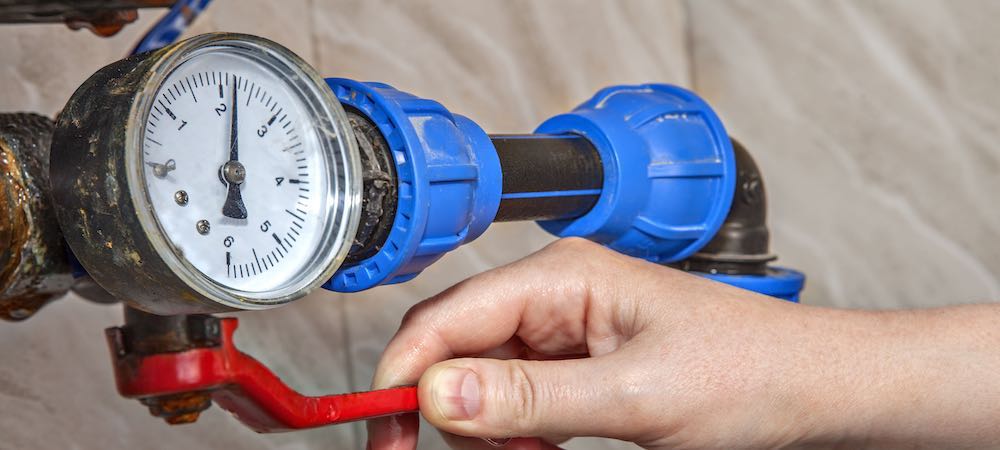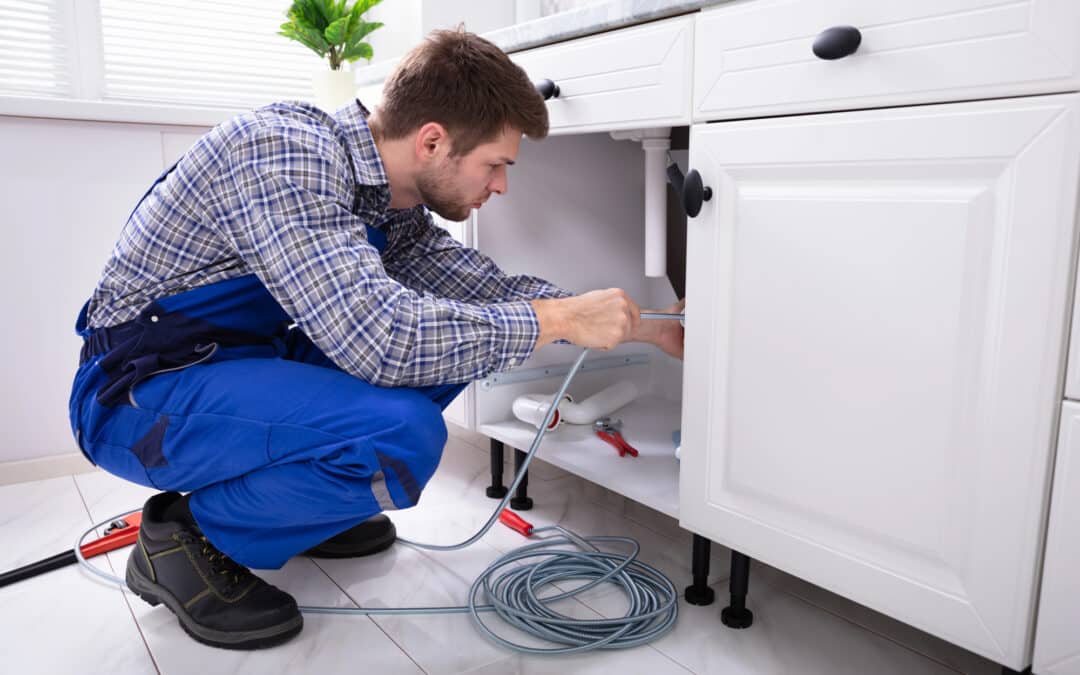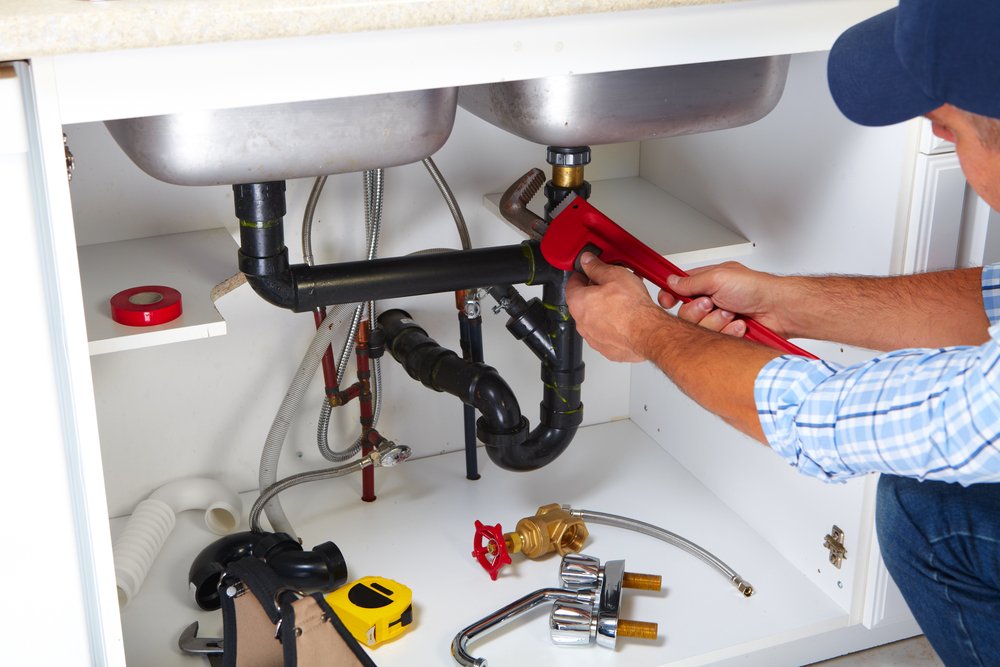To handle plumbing emergencies, shut off the water supply, contain leaks with towels or buckets, and call a licensed plumber immediately. Regular maintenance, like inspecting pipes and flushing your water heater, helps prevent costly issues. For 24/7 expert help, contact emergency plumbing services.
Plumbing emergencies are stressful, expensive, and disruptive. Knowing how to handle these situations can help you minimize damage and control costs. Here’s your go-to guide for managing emergency plumbing issues and preventing them in the first place.
What Are the Most Common Plumbing Emergencies?
Homeowners often face issues like burst pipes, clogged drains, and overflowing toilets. These problems can cause serious damage if not addressed quickly.
- Burst Pipes: A sudden increase in water pressure or freezing temperatures can rupture pipes, leading to floods.
- Clogged Drains: Hair, grease, or debris buildup can block water flow.
- Leaky Faucets and Pipes: Even small leaks can waste gallons of water over time, driving up bills.
If you experience any of these issues, contact emergency plumbing services immediately.
Simple Steps to Prevent Plumbing Emergencies
Inspect Pipes Regularly
Check for signs of corrosion, leaks, or wear and tear. Addressing minor issues early can prevent expensive repairs later.
Avoid Pouring Grease Down Drains
When grease cools, it solidifies and clogs pipes. Instead, dispose of it in a sealed container.
Use Drain Covers
Install drain covers to catch debris like food scraps and hair, preventing blockages.
Monitor Water Pressure
Use a pressure gauge to ensure your home’s water pressure remains between 40–60 psi. High pressure can strain pipes and cause them to burst.
Flush Your Water Heater
Sediment builds up in water heaters over time, reducing efficiency and potentially causing leaks. Schedule annual maintenance to keep your system in good shape.
Visit our plumbing maintenance page for more tips on keeping your plumbing system in top condition.
How to Handle a Plumbing Emergency
Shut Off the Water Supply
Find your home’s main water shut-off valve and turn it off immediately to stop water flow.
Contain the Damage
Use towels, buckets, or even tarps to contain leaks and prevent water from damaging walls and floors.
Turn Off Electricity
If water is near electrical outlets or appliances, shut off the power in that area to prevent accidents.
Call a Professional
Reach out to licensed plumbers for quick, effective solutions. Call TEL: [Phone Number] for immediate assistance.
When Should You Call a Plumber?
Not every plumbing issue requires emergency service. However, you should call a plumber immediately if:
- Water is flooding your home.
- A pipe has burst or is leaking heavily.
- Your toilet is overflowing and won’t stop.
- You detect a sewer backup, often identified by foul smells and water pooling in drains.
Waiting too long can escalate the problem and increase repair costs. For reliable help, check out our residential plumbing services or commercial plumbing solutions.
Tips for Choosing a Reliable Plumber
Finding the right professional during an emergency can be overwhelming. Here’s what to look for:
- Licensing and Insurance: Verify that the plumber is licensed and insured.
- Availability: Choose a company that offers 24/7 services.
- Transparent Pricing: Request an upfront estimate to avoid hidden fees.
- Reviews and References: Read customer reviews or ask for recommendations.
For more information on our services, visit how to choose a plumber.
Preventative Plumbing Maintenance
Regular maintenance is the best way to avoid emergencies. Here are some tips:
- Schedule Annual Inspections: A licensed plumber can detect small issues before they turn into major problems.
- Upgrade Old Fixtures: Replace outdated faucets, pipes, and appliances with modern, durable options.
- Educate Your Family: Teach household members not to flush wipes or pour grease down drains.
Preventative care not only protects your home but also extends the lifespan of your plumbing system.
Eco-Friendly Plumbing Practices
Switching to greener plumbing options can save water and reduce your bills:
- Install Low-Flow Fixtures: These conserve water without sacrificing performance.
- Use a Tankless Water Heater: Heat water on demand to cut energy use.
- Repair Leaks Quickly: A small leak can waste up to 10,000 gallons annually.
Learn more about energy-efficient plumbing solutions at the pros and cons of tankless water heaters.
FAQs About Plumbing Emergencies
What Qualifies as a Plumbing Emergency?
A plumbing emergency involves any issue causing water damage or a health risk, such as burst pipes, flooding, or sewage backups.
How Quickly Should I Call a Plumber?
You should call immediately to minimize damage and repair costs.
What Can I Do Before the Plumber Arrives?
Shut off the water supply, contain leaks, and clear the area for easy access.
Call Us for Expert Plumbing Services
Don’t let plumbing issues disrupt your life. Call TEL: [Phone Number] for prompt, professional service. From emergency repairs to preventative maintenance, our licensed experts are here to help.




